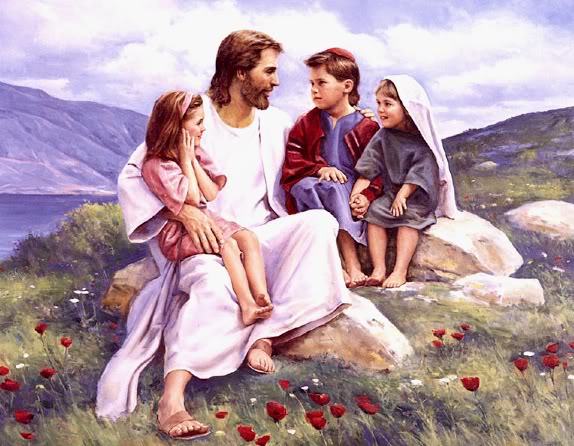To accompany your Come Follow Me study for May 8-14
In addition to reading the indicated chapters, you may wish to:
Read the applicable portions of the New Testament Institute Student Manual at
- Chapter 7: Matthew 19–23 (churchofjesuschrist.org)
- Chapter 13: Mark 8–10 (churchofjesuschrist.org)
- Chapter 19: Luke 18–22 (churchofjesuschrist.org)
Watch the following related video segments:
- Come Follow Me (May 8–14) Matthew 19–20; Mark 10; Luke 18 | Good Gifts for All at Come Follow Me (May 8–14) Matthew 19–20; Mark 10; Luke 18 | Good Gifts for All – YouTube
- Christ and the Rich Young Ruler at Christ and the Rich Young Ruler – YouTube
- Laborers in the Vineyard at The Parable of The Laborers In The Vineyard – YouTube
- Suffer the Little Children to Come Unto Me at Suffer the Little Children to Come unto Me – YouTube
If you would like a Kahoot game related to this material which you could use for personal study or use with your family or your class, click here: https://create.kahoot.it/share/matthew-19-20-mark-10-luke-18/78b8937b-33be-4e69-8f0b-be6bd0bcde58. (To use it with a group, after clicking on this link, you will need to log into Kahoot, creating a free account if you have not done so previously, then click on the blue “Start” button.)
Points to Ponder in Matthew 19–20; Mark 10; Luke 18
Multiple Misconceptions: What mistaken ideas do we find in each of the following situations in this week’s reading?
1. Pharisees of Jesus’ day regarding marriage and divorce? (Matthew 19:3, 7; Mark 10:2-12)

2. Jesus’ disciples as well as many modern-day readers of Jesus’ answer to the Pharisees concerning marriage and divorce? (Matthew 19:9-11; Mark 10:2-12)
3. Jesus’ disciples with regard to little children? (Matthew 19:13-15; Mark 10:13-16; Luke 18:15-17)
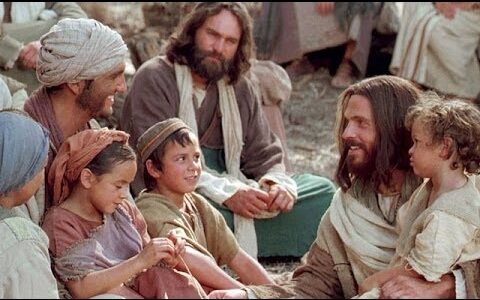
4. Many modern-day Christians with regard to little children? (Matthew 19:13-15; Mark 10:13-16)
5. The Pharisee in the Parable of the Pharisee and the Publican? (Luke 18:10-14)
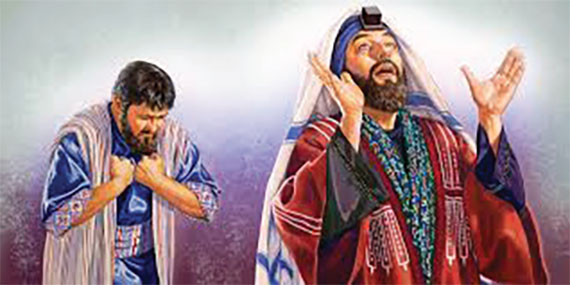
6. The rich young ruler? (Matthew 19:16-22; Mark 10:17-22; Luke 18:18-27)
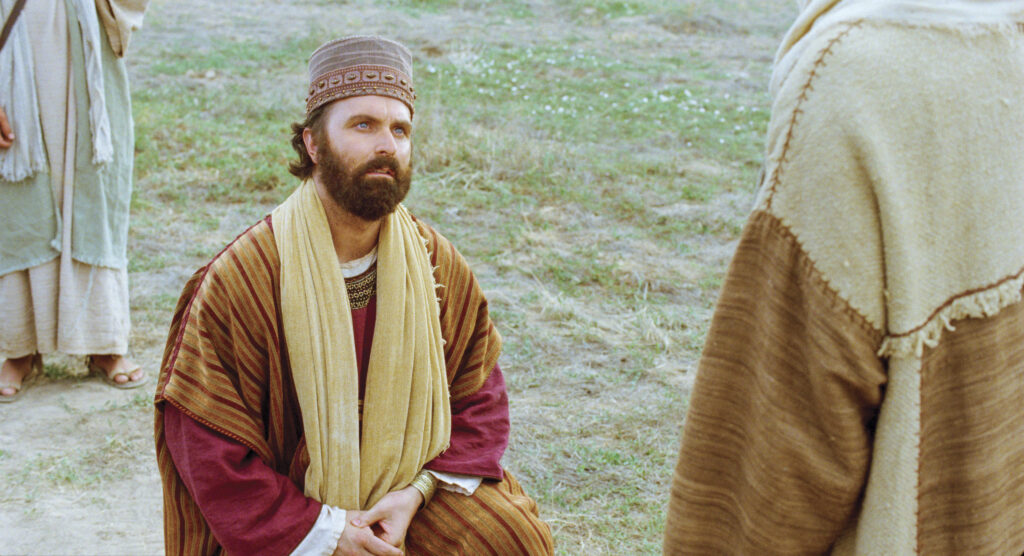
7. Jesus’ disciples and many Bible readers of today upon hearing Jesus’ comments after His encounter with the rich young ruler? (Matthew 19:24-25; Mark 10:23-27; Luke 18:25-26)
8. Peter in Mark 10:28, Matthew 19:27, and Luke 18:28?
9. The apostles when Jesus told them of His impending death and resurrection? (Luke 18:31-33)
10. Those hired first in the Parable of the Laborers in the Vineyard? (Matthew 20:1-16)
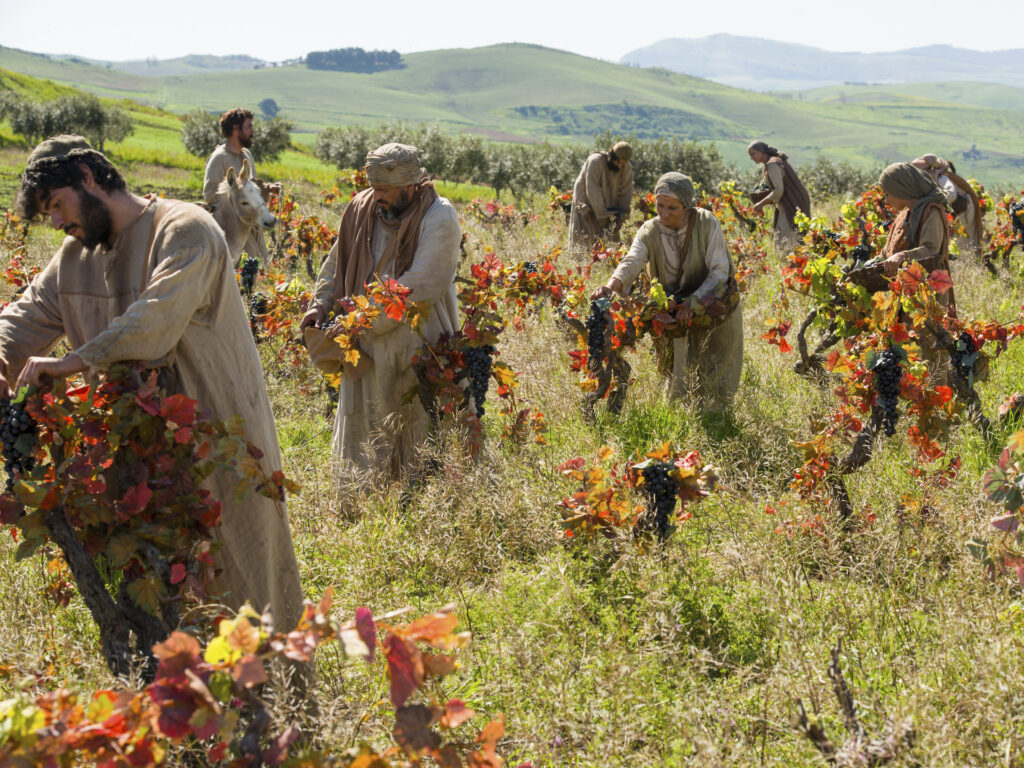
11. Jesus’ apostles and the mother of two of them with regard to greatness and honor? (Matthew 20:20-28; Mark 10:35-45)
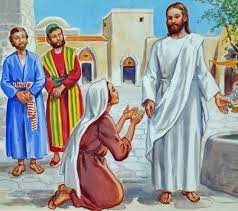
12. The multitude when the two blind beggars sought a blessing from Jesus? (Matthew 20:30-34; Mark 10:46-52; Luke 18:35-43)
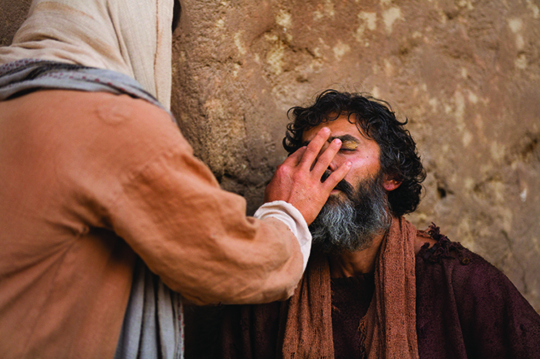
Other matters to consider in these chapters
13. What evidence do we find in these chapters that the rich young ruler was at least partially sincere in his interest in Jesus’ message? How do we know that he wasn’t totally sincere?

14. Do we really need to sell our possessions, give the proceeds to the poor, and spend our full time following Jesus today? Why, or why not?
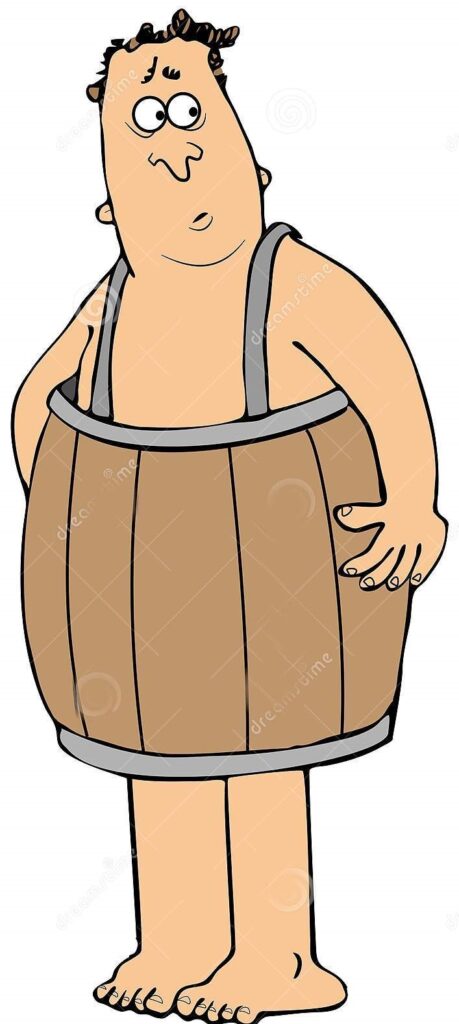
15. How was it fair for those who had labored all day not to be paid more than those who had labored for only an hour in the Parable of the Laborers in the Vineyard? What applications can you see for this parable?
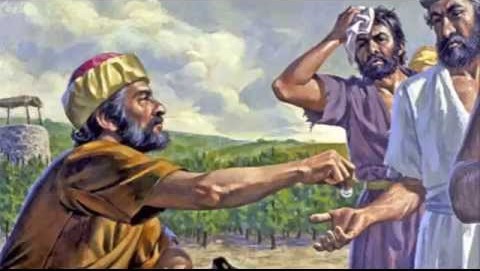
16. What are we supposed to do differently if we fully understand the Parable of the Unjust Judge (or Importunate Widow)? (Luke 18:1-8)
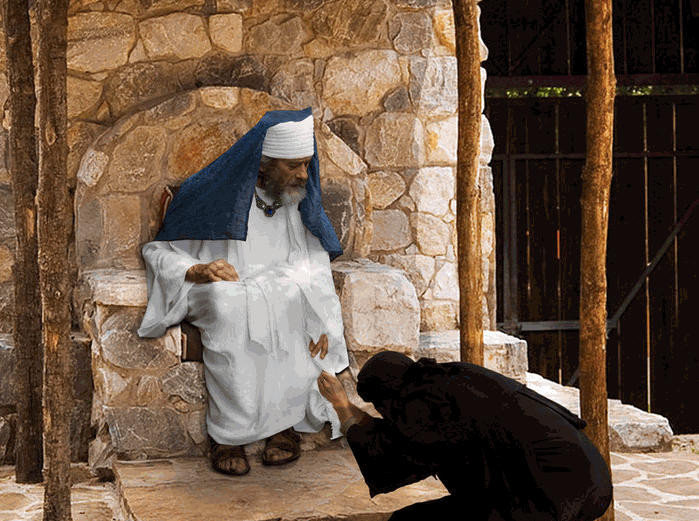
17. Note the minor factual differences among Matt. 20:30-34 and Luke 18:35-43. How do you explain the contradictions? What important truth is illustrated here?
Possible Answers to Points to Ponder in Matthew 19–20; Mark 10; Luke 18
Multiple Misconceptions: What mistaken ideas do we find in each of the following situations in this week’s reading?
1. Pharisees of Jesus’ day regarding marriage and divorce? (Matthew 19:3, 7; Mark 10:2-12)
At least some of them believed that
- Divorce was justifiable even for trivial causes.
- They could trap Jesus by enticing Him to take a position on a controversial issue, ensuring that at least part of the population would disagree with whatever He said.
2. Jesus’ disciples as well as many modern-day readers of Jesus’ answer to the Pharisees concerning marriage and divorce? (Matthew 19:9-11; Mark 10:2-12)
- Some believed then and believe today that divorce is not as serious an issue as it is, to be avoided if at all possible.
- Others mistakenly believe that the higher law which Jesus cited as prohibiting divorce except in cases of adultery by the spouse is applicable in all cases today, which it is not. As Jesus said, “All men cannot receive this saying, save they to whom it is given.” It is not currently given as a general law to the Church.
3. Jesus’ disciples with regard to little children? (Matthew 19:13-15; Mark 10:13-16; Luke 18:15-17)
The disciples clearly thought that little children would be a nuisance to Jesus and needlessly take up His valuable time. They saw children as less important and less deserving than adults.
4. Many modern-day Christians with regard to little children? (Matthew 19:13-15; Mark 10:13-16)
Many have taught that little children are born in sin and need to be baptized as infants to take away the stain brought by Adam’s transgression. It is significant that Jesus here did not baptize the little children but laid His hands on and blessed them, telling onlookers that these children, in their current state, were fit subjects for the kingdom of heaven.
5. The Pharisee in the Parable of the Pharisee and the Publican? (Luke 18:10-14)
The Pharisee thought he was better than the publican because of how much he did and how much he gave to God’s work. He didn’t see that in reality, in his proud state, he was spiritually inferior to the publican, who humbly acknowledged his defects and pleaded to God for mercy.
6. The rich young ruler? (Matthew 19:16-22; Mark 10:17-22; Luke 18:18-27)
He evidently thought:
- There could be one great thing he could do or a donation he could make which would qualify him for eternal life.
- It would not be worth giving up all he had in to receive what the Savior could give him in return.
7. Jesus’ disciples and many Bible readers of today upon hearing Jesus’ comments after His encounter with the rich young ruler? (Matthew 19:24-25; Mark 10:23-27; Luke 18:25-26)
They thought (or think) Jesus was saying it would be absolutely impossible for a rich man to enter into the kingdom of God. But, as the Joseph Smith Translation makes clear, Jesus was saying simply that it would be impossible for those who trusted in riches to so enter, but that it would be possible, with God’s help, for those willing to forsake the things of the world.
8. Peter in Mark 10:28, Matthew 19:27, and Luke 18:28?
Peter seems to have been seeking some special commendation or reward for the great sacrifices he felt he had made to follow Jesus. He seems not to have understood or been fully confident that he would be blessed many times over while in mortality (though not necessarily temporally) for every sacrifice, not to mention the promise of life everlasting in the world to come.
9. The apostles when Jesus told them of His impending death and resurrection? (Matthew 20:17-19; Mark 10:32-34; Luke 18:31-33)
Though Jesus’ words seem perfectly clear to us in retrospect, Luke assures us that His apostles at the time “understood none of these things: and this saying was hid from them.” (Luke 18:34). It appears that God may have wanted to spare them some of the pain and anxiety that a complete understanding of the near future would have brought them, while planting seeds which could grow into a fuller comprehension once the foretold events occurred.
10. Those hired first in the Parable of the Laborers in the Vineyard? (Matthew 20:1-16)
Those first employed felt it was totally unfair that they should not be paid more than those who were employed for only one hour at the end of the day. They didn’t realize that those who worked less than they did would happily have worked more, had they had the opportunity. And they didn’t understand that the anxiety of unemployment can be a bigger burden than physical labor.
11. Jesus’ apostles and the mother of two of them with regard to greatness and honor? (Matthew 20:20-28; Mark 10:35-45)
Neither the apostles nor the mother of James and John understood yet that true greatness came from service to others, not from being awarded a seat of honor at the Lord’s right hand.
12. The multitude when the two blind beggars sought a blessing from Jesus? (Matthew 20:30-34; Mark 10:46-52; Luke 18:35-43)
The multitude seemed to regard the beggars much as they did the little children—less deserving of Jesus’ attention and a probable source of annoyance to Him. They didn’t realize that the beggars “saw” much more than many with full eyesight.
Other matters to consider in these chapters
13. What evidence do we find in these chapters that the rich young ruler was at least partially sincere in his interest in Jesus’ message? How do we know that he wasn’t totally sincere?
Clues of his incipient sincerity include:
- He came “running” to meet Jesus.
- He knelt before Him.
- He called Jesus “Good Master.”
- He expressed his interest in eternal life.
- He indicated he had kept the Ten Commandments throughout his life and asked, “What lack I yet?”
- Jesus, who could read the hearts of others, “loved him” and invited him to follow Him.
Obviously, there were limits to the young man’s sincerity, or he would have followed through on Jesus’ instructions to sell what he had, give to the poor, and follow Him.
14. Do we really need to sell our possessions, give the proceeds to the poor, and spend our full time following Jesus today? Why, or why not?
No. But we must be willing to do so, if the Lord should so instruct us. It is clear from ancient and modern scriptures that we are to regard all we have as but a stewardship, which in the end belongs to God. We are to use it in His service, along with providing for the temporal and spiritual needs of ourselves and our families. We are to be generous with those in need and be conservative in our expenditures on ourselves. We may well consider, as we prepare our wills, whether to pass on our material possessions to our family, upon our departure, or to return it to the Church to advance the Lord’s work and benefit the needy.
Obviously, it would be totally impractical for all of the Lord’s followers to stop working for a living. Someone has to keep the economy going and produce the goods needed by society. Jesus’ instruction to the rich young ruler was applicable as a test to him alone. Unfortunately for him, he failed the test.
15. How was it fair for those who had labored all day not to be paid more than those who had labored for only an hour in the Parable of the Laborers in the Vineyard? What applications can you see for this parable?
It was fair in that
- Each worked as long as he had opportunity.
- Unemployment is at least as great a burden as physical labor.
- Those employed first had agreed to the proposed wage.
- The master of the vineyard had every right to do what he wanted with his own money.
Possible applications include:
- Those who accept the gospel later in life are entitled to every blessing available to those born into the Church.
- A life-long faithful member shouldn’t feel slighted if a comparatively more recent convert becomes his bishop or a general authority.
- Those who didn’t have an opportunity to hear the gospel in this life deserve an opportunity hereafter to hear it, accept it, and be fully blessed.
- No blessings are implied in the parable for those who turn down an early opportunity for employment in order to spend their time in idleness or recreation.
16. What are we supposed to do differently if we fully understand the Parable of the Unjust Judge (or Importunate Widow)? (Luke 18:1-8)
Jesus at the beginning of the parable gives the answer. This is intended as a lesson about persistence in prayer. In no way is it intended to imply that God is reluctant to bless us or that He otherwise has anything in common with the “unjust judge.”
17. Note the minor factual differences among Matt. 20:30-34, Mark 10:46-52, and Luke 18:35-43. How do you explain the contradictions? What important truth is illustrated here?
Mark tells us there was one beggar by the name of Bartimaeus, the son of Timaeus, whom Jesus encountered sitting by the highway side as they left Jericho. Mark further tells us that Bartimaeus cast away his garment, rose, and came to Jesus. In the Luke account, there is only one unnamed beggar who seeks and receives the blessing of sight, as Jesus approaches Jericho. In this case, Jesus commands others to bring the beggar to Him. In Matthew, we are told that two unnamed beggars sought the blessing of sight as Jesus departed from Jericho and that Jesus touched their eyes, after which they immediately received sight.
There are no serious contradictions. It is relatively unimportant whether there were two beggars or one, what their names were, how they reached Jesus, whether it happened as Jesus approached or left Jericho, or whether He touched their eyes or just spoke to them. What matters is that Jesus showed mercy on the faithful handicapped and that He had and has power to heal both physically and spiritually. The existence of these various accounts also shows that the Bible does not pretend to be infallible in every detail and that our 8th Article of Faith is appropriately worded. It also could be a good reminder to those who complain because some accounts of Joseph Smith’s First Vision contain details which other accounts don’t that a scriptural record can be true in all important details while incomplete in less significant matters.
